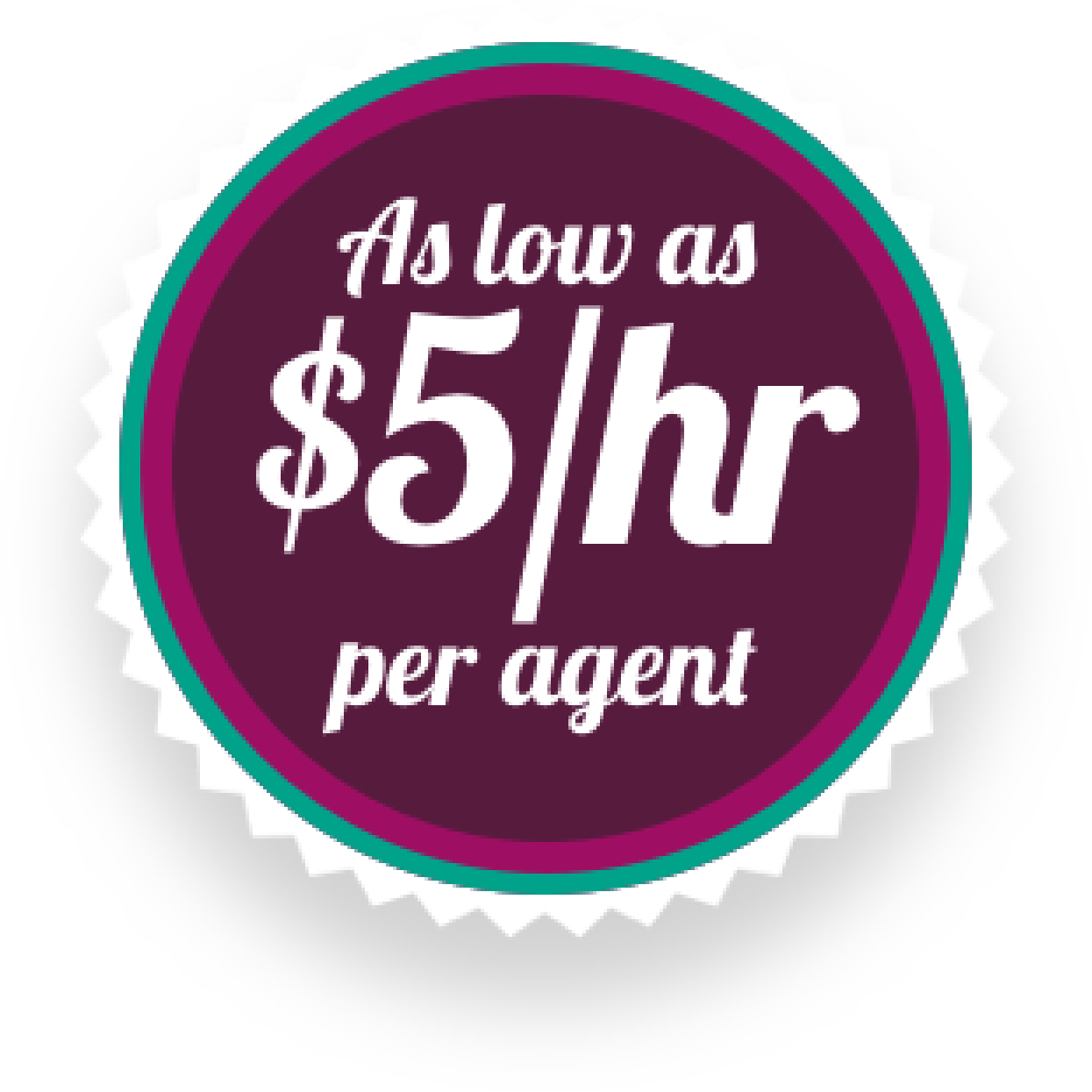Cold calling may not be the most enjoyable task, but it is a crucial skill for success in many professions, particularly in real estate sales. Even if you find it unpleasant, like doing cardio at the gym, you still do it because it has benefits. Likewise, to excel in sales, you don’t necessarily have to enjoy cold callers for real estate work, but you must be skilled at it. The key is to approach it with a positive attitude and focus on the potential rewards that can come from it. With practice and determination, you can master the art of cold calling and achieve great success in your career.

Just as auditioning is an integral part of an actor’s job, real estate sales professionals must embrace the challenging task of cold calling. While buying leads from services like Zillow or Realtor can be an option, these companies still rely on outbound phone campaigns to secure sales. Although it may not be the most glamorous aspect of the profession, cold callers for real estate must be willing to put in the work and make those necessary calls to succeed.
So, how do you become proficient at cold callers for real estate?
One approach is to use the “HOCA Method” strategy, which the author, who has spent 20 years prospecting over the phone and building three multi-million dollar companies, describes in a complete guide.
-
- Spend time in the office: To excel in the field of real estate, going to the office is a critical aspect. The office serves as an environment where you can learn from successful agents and replicate their strategies to achieve success. It’s comparable to going to the gym; you can work out at home, but there are potential distractions that can derail your progress. Avoid being a lone wolf or a secret agent and make it a point to get into the office regularly. This will allow you to learn from the best and improve your skills to reach your goals.
-
- Make cold calling a priority: If you want to succeed in real estate sales, cold calling is a must. You have to reach out to potential clients and persuade them to work with you. To gain an advantage over other agents, start your day early, preferably around 8 a.m. This will give you a head start as most agents typically arrive at the office around 10 a.m. Remember, early bird catches the worm!
-
- Dress to impress:It’s important to dress professionally and confidently, as if you were meeting the most important person in the world. This can help you exude success, even if you don’t have any clients yet. By dressing for success, you’ll feel more confident and project an image of professionalism that will inspire trust in potential clients. So, don’t underestimate the power of dressing well – it could make all the difference in your real estate career!
-
- Practice role-playing daily: Professionals practice, drill, and rehearse. Role-playing with live partners helps you learn how to answer objections from clients. Questions such as the name of your company, your commission, how many homes you have sold, and whether you are familiar with the type of home they have are still the same questions that were asked 50 years ago.
-
- Play music while you work: Playing music can help you work better, just like the seven dwarves who sang while they worked. Music helps you stay focused and keeps you going, even when you’re making cold calls.
-
- Stand up: Standing up while speaking gives you more energy and authority. Engaging in this practice can provide you with a sense of control while also benefiting your spinal health. Get in the game and pick up the phone. Even if you’re embarrassed, it’s important to try. The other agents in the office don’t care, and those who do criticize aren’t making the calls themselves.
-
- “Get in the game” means that you need to be active in order to achieve success. Just like in basketball, where playing with stronger and more skilled athletes can help you improve, in real estate, you need to pick up the phone and start calling potential clients. It’s common to feel embarrassed or nervous, but the agents around you won’t judge you, and those who do aren’t the ones making the calls. Instead of worrying about what others might think, spend more time on the phone.
-
- “Who You Gonna Call?” refers to the importance of having a list to call. One recommended list to start with is expired listings, which are properties that were not sold before their listing agreement expired. Although some may argue that it’s not truly cold calling, the fact is that these people were already interested in selling their homes, so they are a good target for your services. Another type of prospect to consider is for sale by owners (FSBOs). To begin with FSBOs, create a list of every FSBO in your market, and call them every Monday and Friday.
-
- “Where Do You Get Your Lists?” presents two options for acquiring a list of expired listings: manually downloading the list from the MLS or subscribing to a service that provides the list. Subscribing to a service is the best option since it saves time, and there are many providers that offer lists as a side product to their autodialer service. Four commonly used services are Mojo, Vulcan 7, RedX, and ArchAgent.
-
- “Scripts” are pre-written dialogues that help you sound confident and knowledgeable when making cold calls. Professionals, such as lawyers, rehearse their scripts until they become second nature. In real estate, having a good script can help you keep the conversation going and build rapport with potential clients. For example, you could practice scripts for calling expired listings or FSBOs. By mastering your scripts, you can build your confidence and make more effective calls.
Challenges Faced by Cold Callers for Real Estate
-
- Starting a cold call in real estate can be challenging, and it is best to avoid opening with identifying oneself as a real estate agent. Instead, it is recommended to begin with an introduction, for instance, “Good morning! I’m looking for Mr. or Mrs. Smith. Mrs. Smith, my name is Paul Argueta. We’ve never met. Here’s why I am calling…” The “we’ve never met” phrase catches the listener’s attention and spikes their interest, leaving them curious about the purpose of the call.
-
- Leading with questions is a crucial aspect of selling real estate. Making statements can be doubted or refuted, but when the client says something, it is considered truthful. For example, instead of answering a question like “Do you specialize in this neighborhood?” with a yes or no, a more effective response would be to ask, “Is being a specialist in the area the most important part of your decision-making process when it comes to selecting your agent?” This way, one can lead the client to the intended result by asking the right questions.

-
- To schedule an appointment with a potential client, it is essential to learn to ask for the appointment tactfully. Offering the client options like “I’d like to interview for the position of being your agent. Are mornings good for you or would you prefer evenings?” can lead to a more favorable response than a yes or no question. By giving options, people are more likely to select one of two options, making it easier for the seller to close the deal. The best time to ask for an appointment is around the third or fourth attempt, as it takes time for clients to make decisions.
-
- The HOCA Method is a real estate technique that was developed through trial and error. HOCA stands for “Handle Objection Close for Appointment.” Whenever an objection was raised by a client, the method requires the real estate agent to answer the question and then follow it up with a closing for the appointment. This technique has proven to be effective in closing deals, as real estate agents have to re-close the client after answering each question.
-
- Avoid discussing commission or price over the phone. Acknowledge the objection and then close for the appointment. Price objections can be dealt with during the listing presentation. By doing so, the real estate agent can demonstrate their competency, increasing their chances of closing the deal.
-
- Repeat. Approve. Confirm is a strategy that involves repeating what the client has said, acknowledging it with an approving remark, and confirming that the client has understood what has been said. This strategy creates a psychological effect that encourages the client to say “yes” and helps the real estate agent to build rapport with their client.
-
- Closing early is a technique that requires the real estate agent to seize opportunities and not be scared to close early in the conversation. By being confident, they can close a sale early without talking themselves out of it. Pre-qualifying prospects is important for time management, but it is important not to talk oneself out of a sale.
Get expert guidance cold callers for for all your real estate needs.





